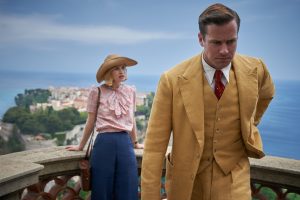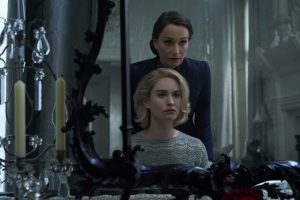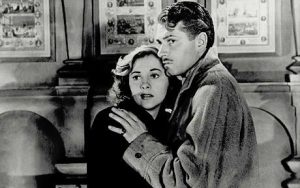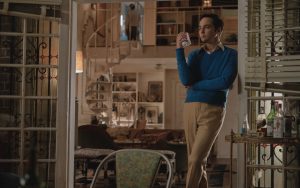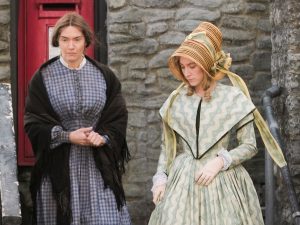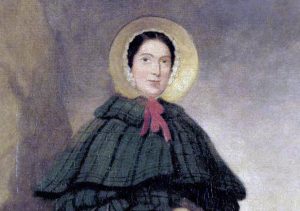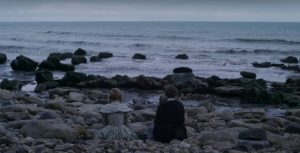Rejoice, my fellow Tolkien fans! For today we have learned about substantial new evidence to support the theory that an actor has recently joined the cast of Amazon Prime’s upcoming The Lord Of The Rings series. Although it’s not yet official, the evidence is very strong, and if nothing else it should help to fill the void in Tolkien fandom discourse that until recently was being filled by think-pieces regarding sexuality and nudity in Middle-earth, and…well, that’s a conversation I think we can probably take a break from at this point, no? I’ve made my thoughts on the matter clear, at any rate.

This new theory comes to us from Fellowship Of Fans, a very reliable YouTube channel that also revealed some of the first behind-the-scenes photos from the set (showing some mountainous set design), and has kept up to date with The Lord Of The Rings cast and crew’s social media, scouring for clues and hints about filming locations, characters, etc. Today, Fellowship Of Fans revealed that Augustus Prew, an English actor with a solid resume in films and TV, has quite possibly joined The Lord Of The Rings cast. Prew has been in New Zealand for some time, and his Instagram posts indicate that he’s been staying close to various filming locations for the series. Most of the other cast-members in the show, as well as director J.A. Bayona, follow Prew and regularly interact with his posts, and he follows several of them back, including Bayona and The Lord Of The Rings On Prime‘s official Instagram account. It’s not enough proof to say anything for certain, but it’s looking very likely at this point that Prew will indeed be joining Amazon Prime’s Middle-earth adventure.
The big question, of course, is who will he be playing? The Tolkien community on Twitter has speculated that he might be Gil-galad, due to his passing resemblance to Mark Ferguson, who played the High King of the Noldorin Elves for about three or four seconds in Peter Jackson’s The Fellowship Of The Ring. It’s actually a pretty good theory and the attention to continuity would be admirable. COVID-19 has made it extremely difficult to discern when filming is going on and how much has been completed, but I did momentarily doubt whether such a major casting would come seemingly so late in the game, with the two-part pilot reportedly finished and the rest of the season already underway (filming is rumored to end sometime around March or April of next year) – until I realized that Prew has been in New Zealand since at least September, giving him plenty of time to film scenes for the pilot. Really, anything is possible, but Prew’s facial features do seem to suggest that he’s playing an Elven character, and Gil-galad is an obvious choice.

But if he’s not Gil-galad, I’m going to throw out a different theory, for which I have precisely no evidence. I think Prew could be playing Oropher, the King of Mirkwood (before it was actually called Mirkwood, back when it was still the Greenwood). Oropher was the father of Thranduil, whom Lee Pace memorably portrayed in The Hobbit trilogy, and I can see a resemblance between Prew and Pace – with a platinum blond wig, ice-blue contacts and thicker eyebrows, I think Prew could easily pass for Pace’s in-universe father. In the Second Age, Oropher’s reign was chiefly marked by his hostility towards the Noldorin Elves, and his eventual refusal to follow the orders of King Gil-galad during the War of the Last Alliance, ultimately leading to Oropher’s unnecessary death and the slaughter of a large part of his army. Thranduil was left in control of the remaining forces, but also homeless: because the seat of Oropher’s kingdom in Amon Lanc was taken over by evil creatures during the king’s absence. That’s how Thranduil ended up in the far north of Mirkwood, and it’s also how Amon Lanc turned into Dol Guldur, the hiding-place of the Necromancer in The Hobbit. I imagine that this sort of juicy backstory is exactly the sort of thing Amazon will include, and could potentially foreshadow by having Oropher appear throughout this first season of The Lord Of The Rings (or whatever it ends up being titled), along with a younger Thranduil. Even if Prew’s not playing him, I suspect both these characters will still show up in some capacity.

As for Prew himself, I don’t know a great deal about him, except that he’s the first openly LGBTQ+ actor to join The Lord Of The Rings cast (as far as I know), and he has had notable roles in films like Charlie St. Cloud, The Secret Of Moonacre, and Almost Love (which, by a bizarre coincidence, I just recently watched for the first time on Netflix: Prew was very good in it), and TV series’ like The Borgias, Prison Break, and The Morning Show. Just based on the little exposure I’ve had to his work, I’m very excited to see what he brings to The Lord Of The Rings – if he has indeed joined its ensemble cast.
So what do you think? Will Augustus Prew be in Amazon Prime’s series, and if so, who will he be playing? Share your own thoughts, theories, and opinions, in the comments below!

